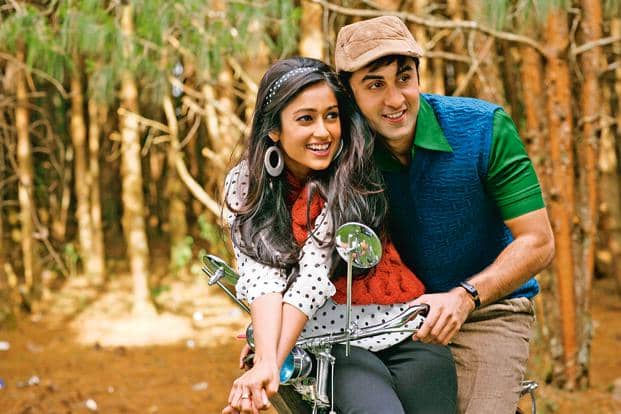Tribute to Barfi | 8 Years of Movie Barfi | The Project Quote
- Srilekha Mitra
- Sep 15, 2020
- 3 min read

Jane Fonda once wrote,
“Life is not about perfection but completion.”
Anurag Basu’s Barfi says the same thing without saying it. Love in this film is not the cosmetic, geographically manipulated stroll in tulip fields with a song being lip-synced by two air-brushed individuals. It is one trusting finger tangled in a hand that knows how to answer that trust. It is shared foolishness. Spitting out watermelon seeds. Trying to hitch a ride by puncturing vehicles that don’t stop. Shining broken pieces of mirror in each other’s dark corners. The unself-conscious undressing of a soul before eyes that do not judge.
The hysteria of one that can only be contained by the other. Making Origami birds and willing them to fly because ”agar hausla ho to kaagaz ke par bhi ud sakte hain.” Wordless, unquestioned sense of belonging. Rituals of meaningless laughter no one else can understand.
Barfi played with blinding sunshine by Ranbir Kapoor and Jhilmil (Priyanka Chopra) are two such imperfect people just right for each other and yet they do not cross each other’s path for the longest cinematic time.

Barfi is too busy falling in love with the limpid eyed Shruti (Ileana D’Cruz) This is a textbook romance. Of the senses. Of toy trains winding across Darjeeling’s glades, of eye locks, stolen kisses, daydreams, the crazy passion reminiscent of the early scenes of The Notebook, of awakening and unfurling. For Shruti, it is the time she will never forget because this is the time when she was most free, most herself. And as she tumbled into a bush headlong with Barfi and his accident-prone bicycle, she learned that the riskiest thing in life is to not take a risk.
Barfi, who till now had a remarkable disregard for his disability (he is deaf and mute), will learn for the first time that he is not enough. That he can be loved by the perfect girl but not accepted as a part of her world. He vents his rage wordlessly in a drizzle that is just beginning to fall and then leaves. Though not forever because life will bring him face to face again with Shruti.
If only to remind Shruti just what was lost in the moment she decided to listen to her fear rather than her love. And then Jhilmil, an autistic child-woman who was once Barfi’s childhood memory and like Devdas’ Paro, was called to the window, not by a carefully aimed stone but a shoe, reappears in Barfi’s life, first as a kidnapped bait and then as a little, stubbornly persistent companion who will not leave him no matter what or who comes between them.

The film is not so much as a story as a study of love and what it can be when stripped of all pretense and defensiveness and expectations. And it recalls a simpler time almost as if a love like this would not be possible today. This is the time of liquid moments of pure joy as when Barfi and Jhilmil zoom across railway tracks to only stop within inches of a speeding train or when they make dough animals instead of chapatis in their makeshift kitchen.
There is a Chaplinesque innocence and a Laurel and Hardy Burlesque humor in the way Barfi conducts his life and his interactions with obsessed policemen, loss, and heartbreak.
The movie could have been easily called “Jeena Isi Ka Naam Hai.” Because really, that is who we are in a world starved of real connections and emotions powerful enough to sweep us away.
The irony is that it is two individuals who never speak to each other, are severely challenged in conventional terms who show us triumphantly that the real disability is the inability to give love. And to receive it.
By Srilekha Mitra




Comments